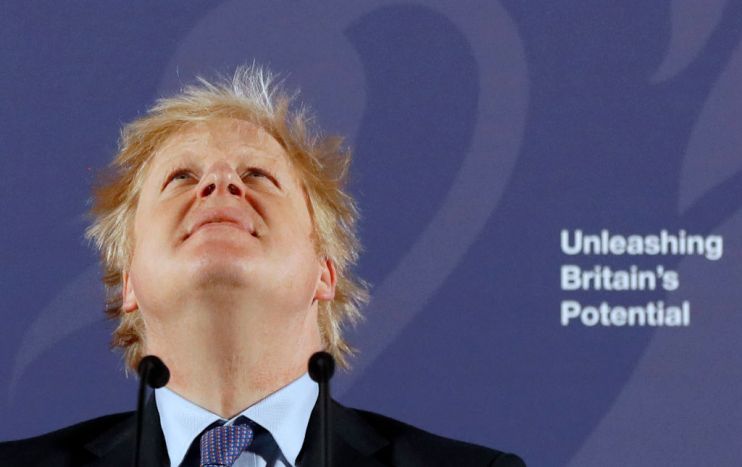Government tells EU deal must be struck this year as it reveals negotiating position

Downing Street has stressed a trade deal must be struck this year if it is going to happen at all, as part of its opening gambit in trade talks with the EU, following Boris Johnson’s landmark speech this morning.
The government is seeking a deal with the EU that is “at least as good” as the ones recently struck with Canada and Japan, according to a document setting out the UK’s proposals for trade talks.
The negotiating document, which was published this afternoon, sets out ambitions to secure a free trade agreement (FTA) including “no tariffs, fees, charges or quantitative restrictions” between the two sides, with a protocol setting out “appropriate and modern rules of origin”.
Read more: Exclusive: Downing Street plots for UK to take up its flag at WTO months ahead of transition
The document stresses that the UK will set its own sanitary and phytosanitary regime (SPS), but notes “it may be possible to agree equivalence provisions to reduce practical barriers to trade at the border”.
When it comes to the City, the government is calling for an agreement that provides a “business-friendly environment for financial services firms” with obligations on market access and fair competition.
“Given the depth of the relationship in this area, there should also be enhanced provision for regulatory and supervisory cooperation arrangements with the EU, and for the structured withdrawal of equivalence findings,” the blueprint says. It also calls for mutual recognition of professional qualifications, and more generally calls for “significant provisions on trade in services”.
Read more: Exclusive: Downing Street poised to start US trade talks with team and priorities ‘pretty much set‘
“The government wishes to see a future relationship based on friendly cooperation between sovereign equals for the benefit of all our peoples,” the document says.
Stressing that transition will not be extended beyond 2020, it continues: “The question for the rest of 2020 is whether the UK and EU can agree a deeper trading relationship on the lines of the free trade agreement the EU has with Canada, or whether the relationship will be based simply on the Withdrawal Agreement deal agreed in October 2019, including the protocol on Ireland/Northern Ireland.”
Trade talks with the EU are not expected to begin until early March, as chief negotiator Michel Barnier will not have received the go-ahead from all 27 member states until after the next European Council later this month.
Trade talks with the EU are not expected to begin until early March, as chief negotiator Michel Barnier will not have received the go-ahead from all 27 member states until after the next European Council later this month.
However it is likely that there will be significant areas of disagreement, not least on the so-called level playing field – effectively agreeing to the same competition, state aid and taxation, as well as environmental protections – and fishing, where the UK is asking for annual talks regarding access to the UK’s waters.
Speaking just an hour before Johnson’s speech in Greenwich, Barnier demanded “reciprocal access” for fishing vessels, and declared that a free trade area with no tariffs or quotas was dependent on a “level playing field… ensured through robust commitments”.
But the UK’s negotiating document makes it clear that it will not accept a level playing field, despite it being a commitment in the Political Declaration both sides signed up to as part of October’s Withdrawal Agreement.
“The government will not agree to measures in these areas which go beyond those typically included in a comprehensive free trade agreement,” the document says. “Both parties should recognise their respective commitments to maintaining high standards in these areas; confirm that they will uphold their international obligations; and agree to avoid using measures in these areas to distort trade.”